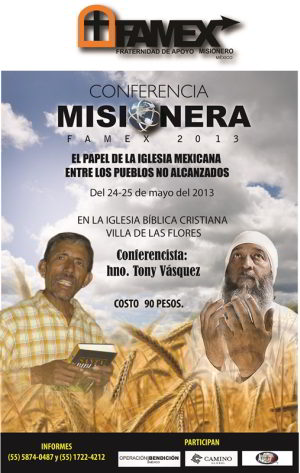Hmmm… yes, it has been a little quiet around here lately! And why would that be?
Well, one reason – it’s May. MANIC MAY. Traditionally May is a crazy crazy crazy month, and this year has been no exception.
‘Nuff said about that.
Last week we took some time away, spending time as a family and visiting friends in other states of Mexico.
On the weekend we enjoyed a missions conference in north Mexico City, put on by a church there and FAMEX, a Mexican mission agency that our mission works with.
It was a really good time to learn more about needs in Mexico and around the world.
We enjoyed seeing David Gomez, who worked with us here and is now serving in Uruguay. He shared some of his fish-out-of-water adventures as a Mexican in a foreign land.
We also saw many others who are either serving in or heading to countries around the world – Asia, the Middle East – many other cultures and countries.
Quite a few came from our church to the conference. Our friend Samuel gave a workshop on art in the church. Rod helped organize the conference.
It was exciting to see Mexicans and other Latinos making an impact around the world. It was startling to hear about some of the needs. And inspiring to hear some of the things we can do about it.
Now we’re back at work with a busy week closing out Manic May. Hopefully we’ll survive!
I will try to get some pictures up of all our recent adventures – but knowing our schedule, it may be a while. Thanks for your patience! 🙂


